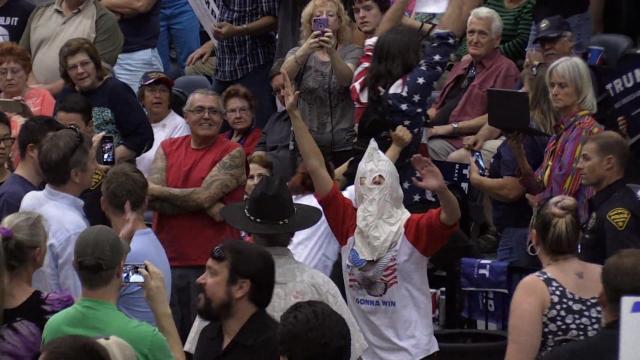At this point, the best Donald Trump can hope for is that his campaign goes down ingloriously in flames. The fire may not be metaphorical, however.
Remarkably unprepared–unwilling, even–to lead, the troll can only dream of the appearance of the Republican nomination being “stolen” from him should he not secure a majority of delegates. His thuggish Presidential bid, a crude and racist joke that got out of hand, may yet ball itself into a big fist that’s unleashed at the GOP convention, the misdemeanors of the trail escalating into felonies.
Among the uniformly irresponsible members of the rogues’ gallery who serve as the hideous hotelier’s braintrust, the gutter-level political hack Roger Stone has already turned prepper for an End of Days scenario in Cleveland, unveiling the threats, only further reducing Trump to the appearance of John Gotti with a Southern strategy.
In a New Yorker piece by Evan Osnos, one of my favorite contemporary nonfiction writers, the journalist reminds that when it comes to this ugly campaign season, Trump didn’t build it alone. It took a village. But how was the mob activated? An excerpt:
It’s easy to mock Trump for his thin-skinned fixation on the size of his audiences, but that misses a deeper point: you can’t have a riot without a mob. Even before he was a candidate, Trump displayed a rare gift for cultivating the dark power of a crowd. In his role as the primary advocate of the “birther” fiction, he proved himself to be a maestro of the mob mentality, capable of conducting his fans through crescendos of rage and self-pity and suspicion. Speaking to the Times editorial board, in January, he said, “You know, if it gets a little boring, if I see people starting to sort of, maybe, thinking about leaving, I can sort of tell the audience, I just say, ‘We will build the wall!,’ and they go nuts.”
The symbiotic exchange between a leader and his mob can thrive on what social psychologists call “emotional contagion,” a hot-blooded feedback loop that the science writer Maggie Koerth-Baker describes as “our tendency to unconsciously mimic the outward expression of other people’s emotions (smiles, furrowed brows, leaning forward, etc.) until, inevitably, we begin to feel what they’re feeling.”
When we are exposed to the right energy, even those of us who are not inclined to cross the boundaries from politics to force will do things that we would ordinarily consider reprehensible. Stephen David Reicher, a sociologist and psychologist at the University of St. Andrews, in Scotland, who has studied soccer mobs and race riots, told Wired last month, “People don’t lose control, but they begin to act with collective values.” Recently, he has turned his attention to studying Trump’s crowds. “It’s not your individual fate that becomes important but the fate of the group.”
And therein lies the key to Trump’s ability to introduce menace into the convention: he does not need to call upon his supporters to do anything but protect their newfound sense of identity and purpose.•
Tags: Donald Trump, Evan Osnos

